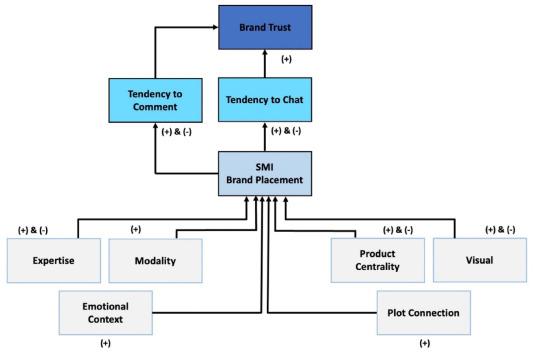How Employers View Digital Credentials: Insights on Value, Trust, and Hiring Trends
In today’s fast-evolving job market, digital credentials—such as online certificates, micro-credentials, and digital badges—are rapidly gaining traction. As education and professional development shift to online platforms, both job seekers and employers must adapt to new ways of showcasing and evaluating skills. But how do employers really view digital credentials? Do they trust them, and how does this trend influence current hiring practices? In this article, we’ll explore the value and perception of digital credentials in recruitment, employer trust factors, notable hiring trends, and actionable tips for job seekers looking to leverage these modern qualifications.
What Are digital Credentials?
Digital credentials refer to verifiable, online representations of skills, achievements, and educational qualifications. These can include:
- Digital badges
- Online certificates
- Micro-credentials
- Blockchain-based diplomas
Issued by accredited institutions, universities, tech giants, or professional organizations, digital credentials are typically shareable on professional networks like LinkedIn or included in digital resumes.
How Employers Perceive the Value of Digital Credentials
The perception of digital credentials among employers is complex, yet increasingly positive. According to a 2023 Credential Engine report, over 80% of employers now recognize at least some forms of digital credentials as credible evidence of a candidate’s skills and knowledge.
- Relevant Skill Evidence: Employers value digital badges and certificates that demonstrate up-to-date,job-relevant skills,particularly in fields like IT,data analytics,and project management.
- Continuous Learning: Digital credentials prove that a candidate is invested in lifelong learning and proactive about professional growth.
- Speed to Skill: Micro-credentials and short-term courses allow candidates to quickly acquire and validate in-demand skills,suiting dynamic industry needs.
However, the value of digital credentials ofen depends on the issuing body, the relevance to the job role, and the employer’s familiarity with the credential’s standards.
Employer Trust: Factors That Influence Confidence in Digital Credentials
While digital credentials are on the rise,employers’ trust is shaped by several key factors:
- Issuer Reputation: credentials from renowned organizations (e.g., Coursera, edX, Google, Microsoft) yield higher trust.
- Verifiability: Blockchain-based and digitally signed certificates reduce the risk of forgery. Employers appreciate credentials that can be easily verified online.
- Credential Clarity: Detailed descriptions specifying the skills, assessments, and learning outcomes add crucial context for employers evaluating candidates.
- Industry Alignment: Credentials endorsed by industry associations or integrated with professional standards are more persuasive.
employers trust digital credentials when they’re reputable, transparent, and aligned with workplace needs.
Hiring Trends: The Growing influence of Digital Credentials
Hiring practices are rapidly changing to integrate digital credentials into the talent evaluation process.
- Skills-Based Hiring: More employers are shifting from degree-based screening to skills-based recruitment, placing digital credentials at the heart of modern hiring.
- Automated Resume Screening: Applicant tracking systems (ATS) and AI-driven platforms are programmatically scanning for digital badges and certificates as part of their candidate ranking algorithms.
- Niche Roles & upskilling: For roles where technology and requirements evolve quickly—such as cybersecurity,digital marketing,or UX design—micro-credentials validate the latest skills and ensure ongoing professional development.
- inclusion Initiatives: Digital credentials create alternative pathways for candidates from nontraditional backgrounds, supporting greater diversity in hiring.
as a result, professionals who actively earn and display digital credentials are often seen as more adaptable and future-ready.
Benefits of Digital Credentials for Job Seekers & Employers
For Job seekers
- Provides tangible proof of skills and continuing education
- Boosts professional credibility and personal brand
- Facilitates networking and visibility on platforms like LinkedIn
- Opens doors to new career opportunities and upskilling
For Employers
- Simplifies and accelerates the talent screening process
- Reduces skill gaps through targeted recruitment
- Strengthens workforce upskilling and talent development strategies
- Enhances project success through better skill alignment
tips for Making Your Digital Credentials Stand Out
- Choose Recognized Providers: Opt for digital credentials from accredited institutions, industry leaders, or widely respected online learning platforms.
- Showcase Credentials Strategically: Update your LinkedIn profile, resume, and personal website with visible badges and certificates.
- Add Context: Briefly explain each credential’s relevance and what it signifies (e.g., skills gained, assessment results, project work).
- Stay Current: Focus on earning credentials in emerging technologies or in-demand skill areas to highlight your commitment to continuous learning.
- Prepare to Discuss: Be ready to articulate how your digital credentials directly contributed to projects, workplace achievements, or tangible results.
Case Studies: Digital Credentials in Action
A leading U.S. retailer partnered with Google to encourage frontline employees to earn Google Career Certificates. over 250 employees obtained certificates in IT and project management, resulting in higher promotion rates and positive feedback from hiring teams about candidate preparedness.
arizona State University integrated digital badges into its continuing education programs. Employers partnered with the university to identify high-demand skills, and students’ badges were recognized in recruitment pipelines, boosting job placement rates.
First-Hand Experience: Employer and Employee Perspectives
“We increasingly look for digital credentials as evidence of practical, up-to-date skills—especially in areas like cloud technology and data analytics. It helps us move beyond resumes and assess candidates’ readiness for real-world challenges.”
– Talent acquisition Manager, Fortune 500 Tech Company
“After earning a series of digital marketing badges online and highlighting them on my LinkedIn profile, I got more interview calls and eventually landed a job at a fast-growing startup. The hiring manager specifically mentioned my micro-credentials during the interview.”
– Jenna R., digital Marketing Specialist
conclusion: The Future of Digital Credentials in Hiring
The value and influence of digital credentials in the hiring landscape are set to grow even further. As industries prize agility, real-world skills, and ongoing learning, both job seekers and employers stand to benefit from embracing digital badges, certificates, and verified micro-credentials.
For job candidates, showcasing reputable digital credentials can boost employability and trust, opening doors to exciting opportunities. For employers,integrating digital credentials into hiring strategies ensures access to a broader,more adaptable talent pool.
The new standard for skill verification is digital—make sure your credentials, and the stories behind them, shine brightly in your career journey.

